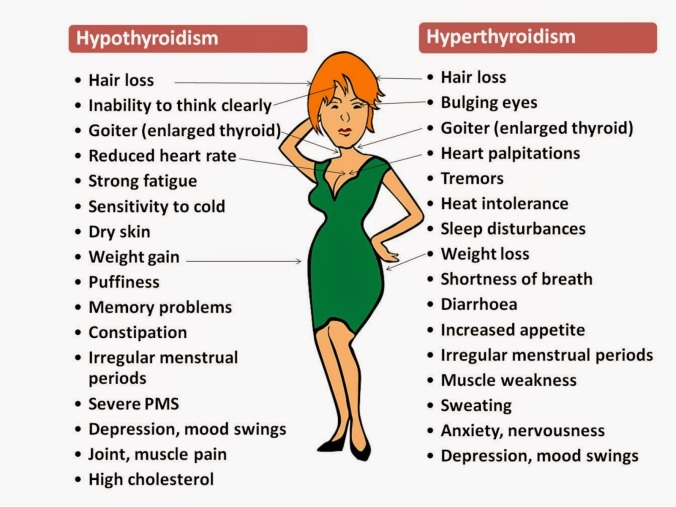
In my office I practice functional medicine. Functional medicine aims to identify root causes of health concerns and in doing so, supports treatment solutions that are long-lasting and sustainable. Given my specialty in mental health, the intersection between your hormones and emotional is a “root” that cannot be dismissed. Your hormones are intimately connected with your mood in a bidirectional, dynamic relationship and one of the major players in this relationship is your thyroid.

Your thyroid is a butterfly shaped gland that sits in the lower part of your neck. It has many important roles including growth & development, metabolism, temperature regulation, and neurotransmitter production among others.
Thyroid dysfunction is on the rise these days. This may be due to the thyroid being particularly susceptible to potentially damaging effects of synthetic, hormone disrupting chemicals that have increased exponentially the past 40-50 years finding their way into the air, water, and food supply. It is estimated that worldwide up to 25 percent of the population have some degree of thyroid dysfunction. Therefore, when I evaluate someone for depression, anxiety, poor motivation, and poor focus among other symptoms, it is imperative that thyroid function be assessed.
Thyroid imbalances can trend in two directions. Most commonly, thyroid function and hormones associated with the thyroid create a state of hypothyroidism. Symptoms associated with hypothyroidism may include fatigue, depression, brain fog, memory loss, cold intolerance, weight gain, muscle pain, and dry skin. Alternatively, hyperthyroidism can be associated with restlessness, anxiety, weight loss, insomnia, rapid heart rate, irritability, and heat intolerance.
Thyroid dysfunction may be the consequence of an autoimmune disorder. Hashimoto’s disease is the autoimmune state more commonly associated with hypothyroidism while Grave’s disease is more commonly associated with hyperthyroidism.
Women have seen the highest increases in thyroid dysfunction especially during pregnancy, postpartum, and postmenopausal states. In fact, it is estimated that up to 80 percent of postpartum depression may be associated with thyroid dysfunction.

It is important to recognize that somebody with undiagnosed thyroid dysfunction may present to a mental health clinician and meet criteria for a number of psychiatric diagnoses such as major depression, generalized anxiety, panic, or attention deficit disorder. Therefore, while your symptoms may qualify you for a psychiatric diagnosis, the foundation of these symptoms may be hormonal, which often demands treatment approaches beyond psychotropic medications.
In my opinion, truly assessing thyroid function necessitates looking at multiple pieces of the puzzle. Too often many of these pieces are neglected leaving an incomplete picture of what your thyroid is doing or not doing. At a minimum I recommend the following lab tests to assess thyroid function:
- TSH (Thyroid Stimulating Hormone, regulates secretion of T3 & T4)
- Free T3 (active form of thyroid hormone)
- Free T4 (inactive thyroid hormone, requires conversion to T3)
- Thyroid Antibody Test (this is important to rule out an autoimmune disease)
- Liver Function Test (your liver is very important for activating thyroid hormone)
- Ferritin (required for T3, your active thyroid hormone to work at the cellular level)
Stress, diet, nutrient deficiency, lack of physical activity, oral contraceptives, heavy metals, pesticide exposure, chronic illness, and compromised liver or kidney function can all be contributors to thyroid dysfunction. Thus, treating thyroid dysfunction demands a personalized approach that considers these multiple factors. There is not a one-size fits all solution. The good news that with a combination of hormonal support, lifestyle changes, and close monitoring, significant improvement is possible.
Ultimately, it is important that mental health symptoms are not seen in a box and that we take a broad approach in investigating what their origins may be. Acknowledging the power of your thyroid and other possible root causes is paramount to finding sustainable solutions.
Stay healthy everyone.

With gratitude,
Audry Van Houweling, PMHNP-BC, Owner She Soars Psychiatry, LLC